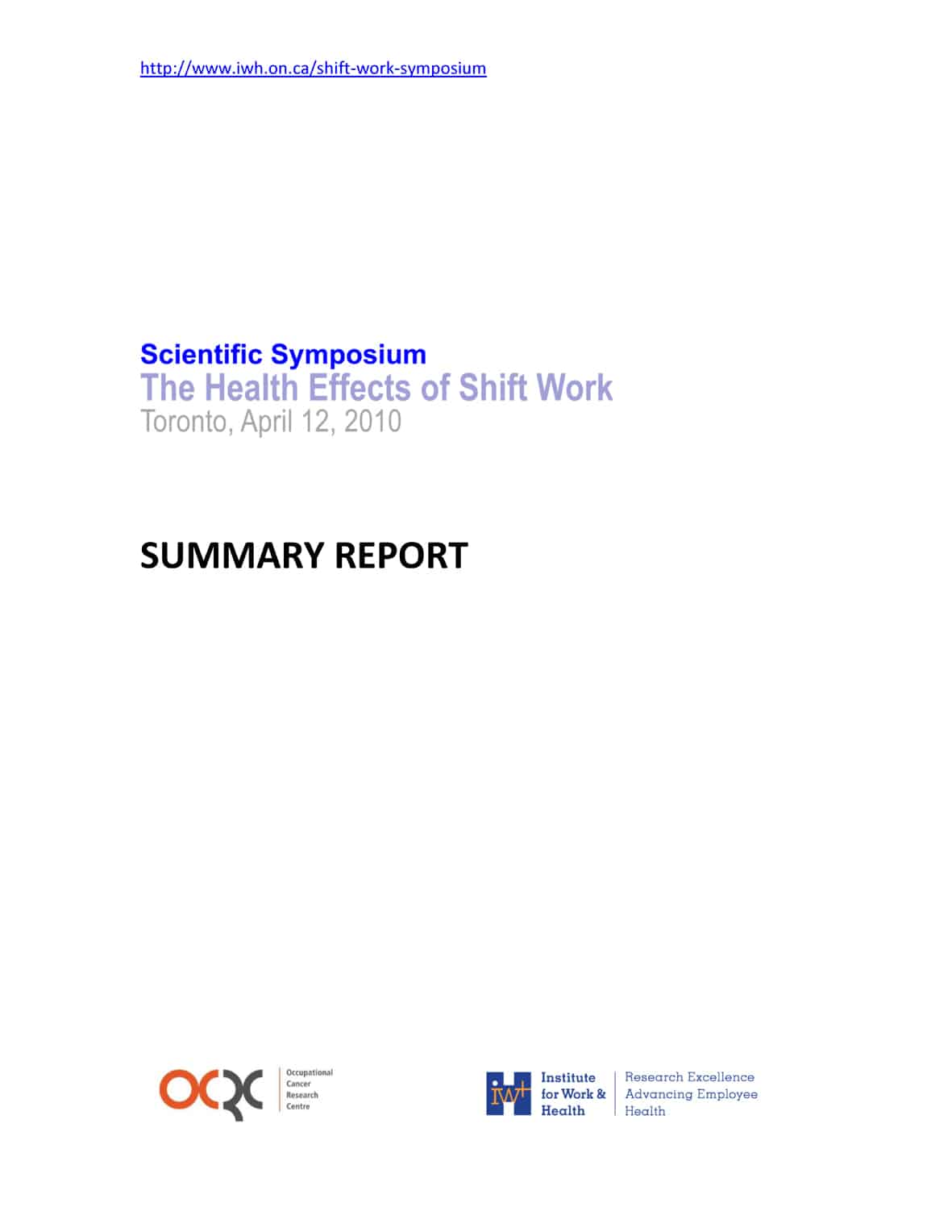 A scientific symposium held in Canada in April 2010 has raised some serious concerns about the health impacts of shift work. Some of the evidence has existed for a while but collecting it all together makes one wonder how companies can justify shift work in the face of such high risks to workers’ health.
A scientific symposium held in Canada in April 2010 has raised some serious concerns about the health impacts of shift work. Some of the evidence has existed for a while but collecting it all together makes one wonder how companies can justify shift work in the face of such high risks to workers’ health.
From the evidence presented at the symposium, workers will be tired at work when working shift work and are more likely to be injured than those on day shift. Some workers have an increased risk of breast cancer. Foetal growth in some pregnant women may be impeded. Circadian disruption may encourage the growth of tumours and an international agency is convinced sufficiently of the risks to determine that shift work itself is probably carcinogenic.
The Occupational Cancer Research Centre and the Institute for Work & Health should be applauded for making the evidence presented at the symposium publicly accessible. Below are the key risk findings from the symposium:
- “Shift work can result in sleep disruption and sleep deprivation, and in sleepiness/fatigue at work.
- Night shift work has been associated with an increase in breast cancer in women who work rotating shifts for longer durations (i.e. 30-plus years).
- Evidence from animal studies supports the link between circadian disruption (in the form of suppressed melatonin production) and the growth of tumours.
- In 2007, based on limited evidence from human studies and sufficient evidence from animal experiments, the International Agency for Research on Cancer (IARC) classified “shift work that involves circadian disruption” (i.e. night shift work) as a probable human carcinogen (Group 2A).
- There is strong evidence that night, evening, rotating and irregular shifts are associated with an elevated risk of workplace injuries.
- There is evidence that shift work has a moderate negative effect on fetal growth in pregnant women.”
Abstracts and PowerPoints for each of the symposium presentations are available and they deserve to be read, kept and considered closely. For instance, one research study on injuries states:
“Estimates of the population attributable fraction indicate that 6-7% of workplace injuries can be attributed to the higher risk of injury associated with shift work schedules. On the basis of this estimate, an excess of 13,000 compensated injuries (lost-time and no lost-time) to men and 20,000 compensated injuries to women in Ontario can be annually attributed to the higher risk of injury associated with shift work schedules.”
Below are the findings that do not relate directly to shift work health risks:
“Shift work is common. About one-quarter of the workforce in North America and Europe is engaged in shift work requiring working at night. In Canada, 11 per cent of workers work rotating shifts, six per cent work regular evening shifts and two per cent work regular night shifts.
A number of biological mechanisms to explain the association between light at night and cancer risk are being explored. The key ones are the suppression of the normal night-time production of melatonin and the disruption of the circadian gene function.
There is not enough high quality evidence to reach firm conclusions on the influence of shift work on heart disease.”
Given the number of risks, the list of possible control measures is thin. This may be due to research into problems rather than controls but it just may be that we are reaching a point where the risks of working night shift outweigh the benefits of production. Could shift work become the classic example where safety is really sacrificed to the benefit of profit?

Does Procter & Gamble use rotating shift schedules in Canada? In Ontario?
Hi,
I worked on ships for about twenty years & did my share of rotating shifts including, night shifts.
My observation:
#1. You never feel fully rested.
#2. It is very difficult to regulate your food-sleep-exercise regime.
#3. I do not think accidents, are caused by shift, but are caused by carelessness & fatigue. Personally I feel, fatigue is a malady which effects most people these days.
#4. unless you are lucky, shifts can play havoc with sleep cycles.
#5. Eventually, I feel shifts, in the long run disrupts a normal lifestyle!
Disrupted (lowered) melatonin production is also a risk factor for mental health issues – depression and suicide, possibly bipolar conditions. This has been fairly well understood for decades, yet powerful industry bodies in Australia do not want to know about the risks associated with shift work or with fatigue.
The pineal gland is an important player in the human immune system. It does not surprise me that there is now a link to cancer and impaired foetal development given that effects of melatonin disruption act through the body\’s major hormonal systems.